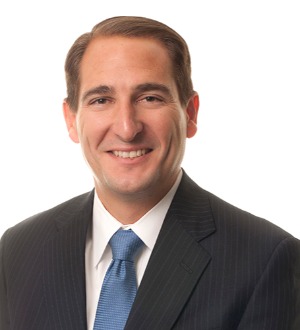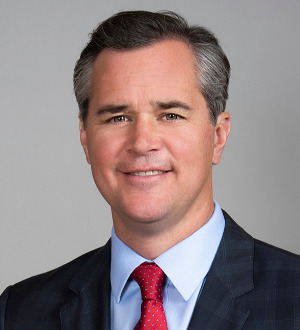Will My Insurance Cover Me if I Drive Someone Else’s Car in Texas?
Driving a car you don’t own can be nerve-racking, especially if you’re unsure whether you’re covered by your insurance. This is a common situation for many Texas drivers who occasionally need to drive a friend or family member’s vehicle. The good news is that in many cases, your auto insurance policy will provide coverage when you drive another person’s car. However, there are some important factors to be aware of. Let’s answer the question: will my insurance cover me if I drive someone else's car in Texas?
How Insurance Works When Driving Another’s Car
In Texas, auto insurance follows the driver, not the vehicle. This means your own personal auto policy extends liability, medical payments, and uninsured/underinsured motorist coverage to you when driving someone else’s car. However, there are some caveats:
- You must have the owner’s permission to drive the vehicle. Driving a car without the consent of the owner would be considered auto theft, which no insurance policy covers.
- The owner’s policy does not extend coverage to you if you cause an accident. You must rely on your own policy. Contact us today to work with a car accident lawyer Dallas TX in this situation.
- Insurance coverage can vary based on the specifics of your policy. Not all policies extend full coverage when driving other cars.
- Physical damage coverage usually only applies to the vehicle listed on your policy, not other cars you drive. You likely won’t have coverage for damage to a car you don’t own.
So, in essence, your liability coverage moves with you to another car, but other protections may not. It’s important to understand exactly what your insurer does and does not cover when driving other vehicles.
Common Situations Where Coverage Applies
There are a few common situations where Texas drivers can expect their auto policy to provide coverage when using someone else’s car:
Borrowing a Friend or Family Member’s Car
If you borrow a car from a friend, family member, or other acquaintance for a short time period, your policy will extend liability and other coverage to you while driving that vehicle. This assumes you have permission to use the car. Your policy will protect you if you cause an accident.
Just keep in mind that you typically won’t have coverage for damage to the vehicle you borrowed unless you purchase rental or non-owned auto coverage. Also, the owner’s insurance would not cover you either. In the event of an accident, contact us for a free consultation with a car accident attorney Dallas TX.
Driving a Rental Car
When you rent a car, your personal auto policy provides liability, medical payments, and uninsured motorist coverage. However, many insurers require you to purchase supplemental liability coverage from the rental company for optimal protection.
It’s also wise to consider the rental company’s loss damage waiver, which covers damage to the rental vehicle. Otherwise, you may be responsible for repairs if the rental gets damaged or stolen. Check with your insurer about rental car coverage.
Using a Car Owned by Someone Living in Your Household
If someone you live with, like a spouse, parent, or roommate, owns a car that you regularly use, you should be covered by your personal auto policy while driving it. Again, this assumes you have permission to use the car. But always verify this coverage. A vehicle accident lawyer can help you understand your policy.
When Coverage May be Limited
While your auto insurance will often extend to another person’s car, there are situations where coverage could be limited or excluded:
- If you use a car owned by your employer for personal errands, a business use exclusion may apply. Business uses are typically excluded. If you are involved in an accident while using someone else’s car for business purposes, contact an automobile accident lawyer.
- If the car owner’s policy has lapsed, your coverage while driving their car may be limited or denied.
- If you use a car without permission, your insurer will not cover you due to auto theft.
- Mechanical breakdowns to a car you don’t own are not covered by your auto policy.
- Your insurer may cap physical damage coverage for non-owned cars at a lower limit.
Whenever you are driving a car you don’t own, it’s wise to confirm the details of coverage. Never assume you’ll be fully covered in all scenarios.
Steps to Take Before Driving Another’s Car
To make sure you’ll be protected if using someone else’s vehicle, follow these guidelines:
- Verify current auto insurance coverage with your provider, ideally in writing. Ask about any exclusions or limitations and have a road accident attorney clarify if needed.
- If you drive a car owned by a household member, have them add you as a listed driver on their policy. This prevents issues proving you had permission.
- Inspect the car before driving it. Take pictures documenting any existing damage.
- Ask the owner if they have appropriate physical damage coverage in force. Be prepared to pay for repairs yourself otherwise.
- Avoid driving borrowed cars for any excluded business uses not covered by your policy. These include deliveries, transportation network companies, etc.
- Purchase non-owner car coverage or a named operator policy if you regularly drive other people’s vehicles. This provides optimal protection.
By taking a proactive approach before driving a borrowed car, Texas motorists can ensure there are no unpleasant surprises if an accident or claim occurs. Speak with a trusted insurance agent for guidance about non-owned auto coverage.
Factors That Affect Coverage When Driving Another’s Car
Insurance can get complicated quickly when driving a car you don’t own. Here are some key factors that influence the coverage you’ll receive:
- Your policy limits: Higher liability limits provide more coverage when driving other cars.
- Permission to use the vehicle: Coverage only applies if the owner gave you express consent to operate their car.
- Age and driving record: A clean record helps maintain coverage when using other cars.
- Types of coverage purchased: Comprehensive and collision may not extend to a non-owned car.
- Relationship to the policyholder: Some insurers limit coverage for non-relative drivers.
- Length of use: Occasional borrowing is viewed differently than regularly driving a car you don’t own.
Understanding how these factors work is crucial for determining the protection available from your insurer. When borrowing a car, always check in advance with your insurance provider about coverage specifics. Don’t just assume you’ll be covered.
Have you been involved in an accident while driving somebody else’s car? For confidential advice, call Karns & Karns Personal Injury and Accident Lawyers on (888) 779-1180.























